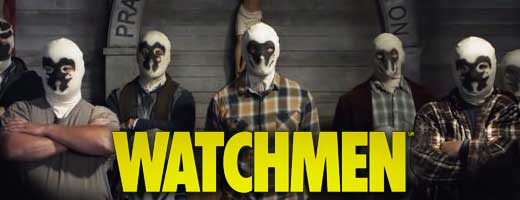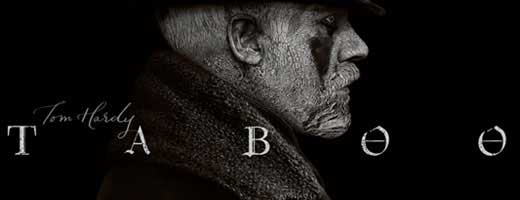True Detective Finale – Great Acting, Strangely Unsatisfying

Have a Theory? Share It Now!
I’m writing you because, of all the commentators I’ve seen, you seem most to combine intelligence with the experience to evaluate things in a realistic manner. Most commentators, even ones who are obviously bright, just don’t have the sense of history, or, apparently, real life, to interpret things except as they compare to other movies or to written fiction.
Some thoughts for what, if anything, they’re worth on the TD Season 3 finale, and overall.
First the acting was often spectacularly good. The scene in which Roland comes to love dogs was one of the best things I’ve seen on television. Wayne was superb, Hoyt effectively threatening, Watts sincere (if a little off-kilter at the end – in almost 40 years in law enforcement and prosecution, I’ve never seen a person, even those who clearly want to be caught and punished, actually say that they want to be punished), Amelia mostly very good, but a little let down by the writing in the Big Exposition Scene. Good solid acting in the smaller roles, as well.
The good: in addition to the acting, lots of little details: for instance, the nun in the finale was the same person as the girl Amelia talks to in episode 6, the one who says Amelia should write about what happens to girls here. Not only same mark on face (by left eye) but same actress and character name (as revealed in closed captioning). Mike’s daughter is “Lucy,” Julie’s mother’s name, which is revealed before the reveal that she is also Julie’s daughter (even if we said “aha” at the time), which also indicates that Julie has successfully recovered her past. Wayne’s name tag in the intermediate (between 1990 and 2015) timeline, where he is head of campus security for the University of Arkansas.
The bad: the Big Exposition Scene itself, with the ghost of 1980 Amelia explaining everything, seems clumsy and forced. Yes, I get the whole metaphor thing, and that Wayne may be using her apparition as a device to introduce his own real thinking to his perhaps befuddled mind; yes I get the metaphysical thing, with the constant references to time throughout the season. Even with that realization, it was sort of cringe-inducing. 1980 Amelia (hairstyle) explicating 1990, 1995 and later events? If there is no supernatural in the season, per Mr. Nic, it isn’t even, then, internally consistent as metaphor or device. It’s it’s so damn convenient; like they were running short on time and needed to get a whole lot of exposition out there quick – or, as my spouse noted, maybe they just thought the viewers were too stupid to figure it out for themselves.
The worse: A major plot point is based on an impossibility. When Hoyt (very effectively) threatens Wayne with exposure as a killer, and more significantly, with harm to Wayne’s family and to Julie, a major aspect of the threat was that Harris James’ beeper had a “computer chip” with GPS, and they could go to the spot of its location before it went dead, and (perhaps) need to take f-ing shovels. That technology did not exist in 1990. First, beepers were receiving devices only in 1990; the first two-way beepers did not exist, as I recall, until the very late 1990s, and even those did not continually transmit – the use needed to type a message and initiate the transmission. More important, in 1990 there were no GPS units available that could fit into a beeper; hell, Intel didn’t even make the Pentium computer chip until 1993. In 1990, the modern, 24 satellite, GPS system was far from complete, and there were only two “hand-held” GPS units made. The premier unit was the Magellan NAV 1000, introduced in 1989, and almost nine inches tall and hand-held only by courtesy – it was a receiver only, could acquire data from three satellites, one at a time, and the calculate position from the data: it was slow and expensive ($3000 in 1990), and used primarily for marine navigation (drug smugglers loved to get their hands on them). The first mobile phone with GPS capability was the 1999 Benefon, which was sold mostly in Europe. (Also, in 1990, the US government, which controlled and still controls, the GPS system, deliberately degraded civilian-use accuracy of GPS because of the first Gulf War – it was not brought back to full utilization – even though that did not compare to today’s – until 1993.) In short, Hoyt’s threat is a complete anachronism: there was no such GPS capability in 1990, and could not have been then used as an effective threat. (Clearly the cameras which saw Wayne and Roland follow James, even if their resolution was good enough for Hoyt to identify them or their car, which is itself doubtful, did not follow them away from the immediate area of the Hoyt plant.)
The worst: Wayne and Roland, as the season ends, do not know that Julie is alive and well, and will go on feeling that they failed.
Some amelioration: Julie is alive and well, and happy. Wayne may recapture his memories, even those delivered through the mechanism of Ghost Amelia, and come to that realization. Perhaps he will inform Roland. Significantly, Henry did not throw out the paper with Mike and Julie’s address, but put it into his pocket after looking at it, so he may well follow up; he is, after all, also a detective. The penultimate scene with Wayne and Amelia walking into the light is a hopeful sign. I must confess I can’t quite understand the Wayne-in-the-jungle last scene. Perhaps it means that since Wayne was always seeking death (so the government life insurance would make his mother rich), everything he has had since then is an unexpected bonus. But it seems that in 2015 Wayne is also at p[eace, even if that peace consists largely in having forgotten his sorrows.
****
Some other errors in the show – maybe lack of attention to detail? Wayne’s timeline is not possible – he could not have been a cop for 12 years in November, 1980, and been a LRRP in the 75th Infantry, which was not organized until February, 1969 (although he could have been a LRRP before that, since the 75th incorporated into one unit LRRPs who had been previously attached to other regiments). (And LRRPs did not operate solo, as Roland said and as the final scene implies, but in small patrols; LRRP is an acronym for Long Range Reconnaissance Patrol.)
In 1990, the investigators could not have gotten records on Lucy’s death from “Clark County Sheriff’s;” although there was a Sheriff, he was head of the Las Vegas Metropolitan Police Department, and had been since the merger of the LV City PD and the CC Sheriff’s Office. The only unit left with a title including “Sheriff” was the Sheriff’s Civil Division, which served process and had no criminal or investigative function. And Nevada Bell would not have provided Lucy’s telephone records, since it provided telephone service to Reno and to rural area; all of the Las Vegas metropolitan area, which included the Strip (Paradise is an unincorporated town which encompasses the Strip) got telephone service from what was then Centel.
****
Although the ending was not completely satisfying, the season as a whole was first rate.
Best wishes,
L. J. O’Neale
Subscribe Now
- Android: https://shatontv.com/true-detective-android
- Apple/iTunes: https://shatontv.com/true-detective-itunes
Help Support the Podcast
- Support with Paypal – https://shatontv.com/paypal
- Support With Venmo – https://venmo.com/ShatPodcasts
- Shop / Merchandise: https://shatontv.com/shop
- Shop Amazon With Our Affiliate Link – https://www.amazon.com/?tag=shatmovies-20
- Sponsor’s Listener Survey – https://shatontv.com/survey
- Leave an iTunes Review – https://shatontv.com/true-detective-review
- Leave a Voicemail – (914) 719-SHAT – (914) 719-7428
- Feeds & Social Media – https://shatontv.com/subscribe-and-follow/
- Checkout our Movie Podcast – http://shatthemovies.com






